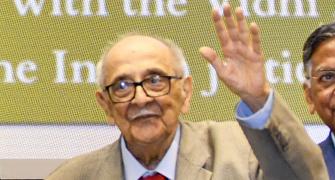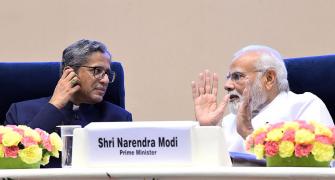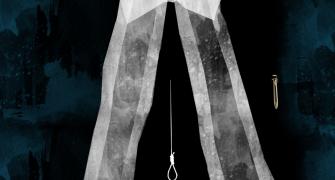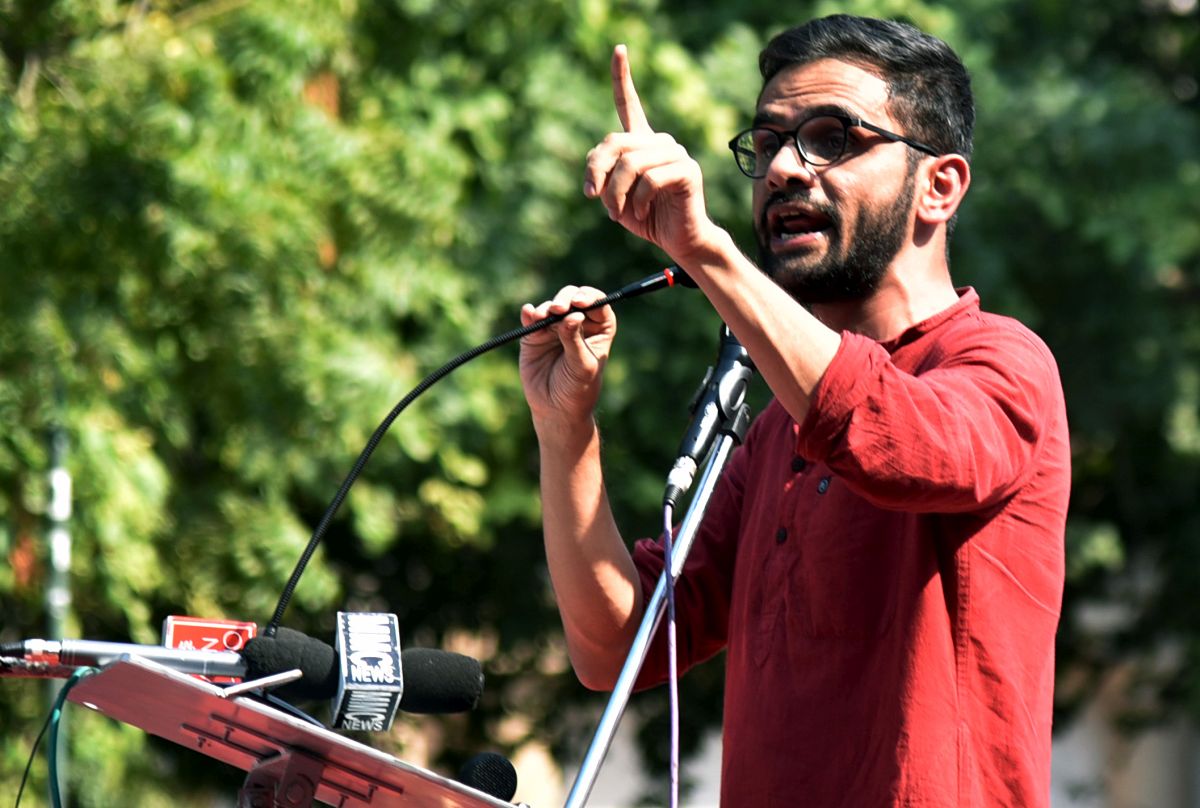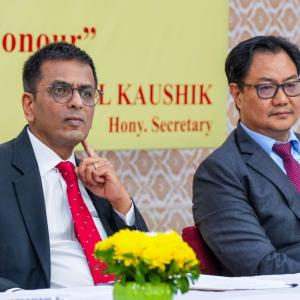'He was the best court craftsman that I have ever seen who could modulate his arguments in accordance with the judge and the mood.'

Supreme Court Advocate Prashant Bhushan who worked with eminent jurist and Constitutional expert Fali S Nariman as members of the Centre for Public Interest Litigation remembers the man and his moments.
"He was a great votary of our Constitution, its Preamble and civil liberties in particular," Prashant Bhushan tells Prasanna D Zore/Rediff.com.
Mr Nariman, 95, passed away in his sleep at his Delhi residence on February 21.
Your memories of the man -- not only as an eminent jurist, but also as a human being
A lot has been written about his juristic ability and his court craft and so on. I mean, Mr Nariman was a fantastic court craftsman.
Court craftsman is a person, a lawyer who has the ability to pitch his arguments according to the judge who is hearing them and according to the mood of the present time. That's court craft.
He was the best court craftsman that I have ever seen who could modulate his arguments in accordance with the judge and the mood. That was his one very unique ability.
Personally, he was always very fond of my father (Shanti Bhushan, lawyer and India's law minister during the Janata Party government), me and my youngest son, who is also a lawyer.
He would, on many occasions, write to us. He would constantly invite us for his lunches and dinners.
He was always a very jovial person, always laughing.
He was a great votary of our Constitution, its Preamble and civil liberties in particular.
Even in this letter that he has written to me (congratulating Prashant Bhushan for the Supreme Court order declaring electoral bonds scheme as unconstitutional) before he passed away, he has expressed the hope that the Supreme Court will revise its views on and strike down these draconian laws with a provision for virtually no bail under UAPA and PMLA.
In normal times, in normal jurisprudence bail is the rule, jail is the exception. Today, this has been reversed.
He had expressed that hope because he also felt like that these provisions for bail violated Article 21 and the rights of citizens to life and liberty.
Many of our human rights activists in Koregaon Bhima or in the Delhi riots cases have either died in jail (Father Stan Swamy) or are still in jail like Umar Khalid under UAPA.
These are just a few observations he would often make.
Landmark judgments that define his career
One was this judicial challenge to the NJAC (National Judicial Appointments Commission) and collegium case.
Another case in which he appeared for us was, and that's also a landmark case, in my view, is the privatisation of BPCL and HPCL.
They (the Atal Bihari Vajpayee government) tried to privatise both HPCL and BPCL, but that was struck down by the Supreme Court (in September 2003). He had appeared for the Centre for Public Interest Litigation (CPIL) in that case.
He was a senior member of the CPIL from the beginning.
In another case I had handed over the original register of the CBI director's residence, which some unknown whistleblower had delivered to us.
The original register showed that many of the visitors were people against whom CBI investigations were going on.
People from various corporate groups had visited (the then director of CBI Ranjit Sinha's home). But at that time, the then judge who was handling the case, H L Dattu, had asked me (in September 2014) to reveal the name of the person who had given me the register.
To discuss this issue we had held a meeting of the CPIL which was attended by Mr Nariman as well. Justice (Rajinder) Sachar and many others were there. We all took a collective decision and passed a resolution that since it is been given by a whistleblower, we won't reveal the name.
Of course, the fact was that even I didn't know who these people were (who delivered the register to me).
But as a matter of principle, we adopted the stand and he participated in it.
Your impressions about the man as a Constitutional lawyer, as a jurist...
More than a jurist, I feel that he was a very good advocate. An advocate is a person who can lead his cause very effectively. Because of his sharp intellect, his wit and his court craftsmanship, he was able to lead his causes very effectively. He was an advocate par excellence.
I wouldn't quite say that he was the greatest jurist or anything. There were, in my view, other jurists who were greater than him. But he was an advocate par excellence.
As told to Prasanna D Zore/Rediff.com

